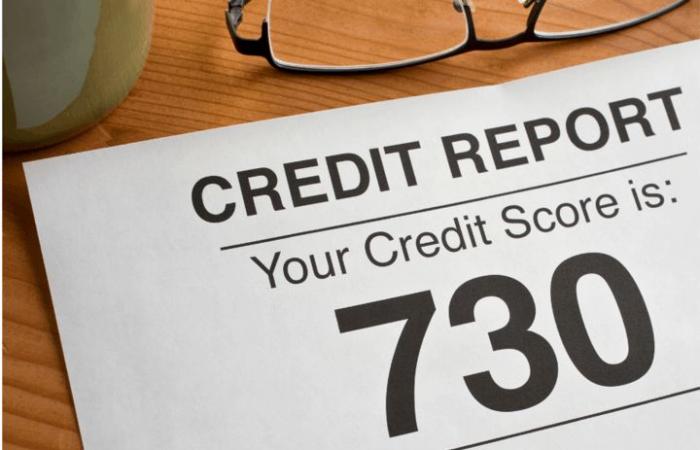
Arabnews24.ca:Friday 24 March 2023 05:31 PM: The financial decisions you make when you arrive in Canada have a huge impact on your credit history and score. And, the concept of credit can sometimes lead to a debate about how it can help, or hurt you when you are building your credit rating. On one hand, credit can be a fantastic tool to help you:
Get a loan or a mortgage Save on credit card and loan interest rates Get approval for lines of credit Obtain certain jobs (i.e. some finance-related roles will require a credit check as a condition of employment)On the other hand, if poorly managed, credit can haunt you for many years, and make you miss out on financial opportunities. Creditors can run a credit check on you to assess if you are a low-risk or high-risk borrower. And, they will decide to grant or deny you a loan or charge you a higher interest rate.
What is Credit History?
Your credit history shows lenders that you are responsible when it comes to paying your financial obligations. Whether that is your monthly rent, utility bills, or loans, etc. If you have come from a country where you have credit bureaus, you know how important your credit history is. Maintaining a good credit history in Canada is also important.
We’ll share tips to help you build and maintain a healthy credit report. With a strong credit history, you can save money and have more financial freedom.
So what is your credit score when you come to Canada? Nothing. Think of it as a blank slate. Everything you do henceforth will dictate what direction your credit rating will go, up or down.
Canadian lenders typically check each applicant’s credit files at one of the main credit reporting agencies (Equifax Canada and TransUnion). This credit file is like a financial report card that tracks how much you borrow and how quickly you pay it back, to calculate your credit rating and credit score.
Without a credit history, newcomers may be told they need a loan co-signer with a Canadian credit rating, and considerable assets as collateral, or they must demonstrate a history of stable income in Canada to receive a loan. Your credit history is one of the things landlords want to see before renting out their home to you.

Top 10 financial steps to take before you leave for Canada
First things to do after landing in Canada
Renting Without a Credit History
Seeing Debt Differently – A Windmill Coach Helps Newcomers Understand the Basics of Borrowing
Banking and Finance in Canada: Your First Steps
Fortunately, you can establish a Canadian credit history and start building a credit record shortly after you arrive in Canada. Your credit history or credit rating starts the first time you get a credit card or loan in your name from a Canadian bank. You can begin by applying for and using a credit card responsibly.
Even if you don’t have immediate plans to buy a house or vehicle, it’s a good idea to establish a credit history, since banks may give special consideration to recent newcomers.
In some cases, newcomers may be offered a ‘secured’ credit card. A secured credit card is different than a regular credit card because it requires a security deposit equal to the amount of the credit limit. Think of it as a stepping stone to getting an unsecured credit card. Such special offers may be more difficult to obtain later, especially if your income does not grow as fast as you had hoped. A credit card is also useful for larger purchases and as a secondary piece of identification.
Why is Your Credit Score Important?
Your credit score is important for a number of reasons:
Lenders will review your credit score when you want a mortgage to buy a home, or a loan to buy a car. They want to understand your ability to manage credit, your ability to pay off debt, and your payment history.2. Landlords will conduct a credit check before they rent their property to you.
3. Some employers will conduct a credit check before they make an offer of employment. This is common with banks and other financial institutions such as insurance companies.
What Credit Score is Good?
Your credit score can fall between the range of 300 – 900. Generally, and depending on the credit score model that your financial institute is using a good score is greater than 680. As a benchmark, to get a mortgage to buy a house in Canada, you need a credit score between 600 – 700. If your credit score is lower than 600, you will want to take steps to increase your credit score.
Once you receive a credit card, use it wisely to establish a credit score so that lenders will have confidence in your ability to repay loans.
Your credit is scored on a point system that ranges from 300 – 900 points, where 900 is the best score. To qualify for a standard loan, it’s best if you score 650 points or higher. If you score lower than 650, it will be difficult to get a loan or receive new credit. However, if you have a low credit score, you can improve your score by carefully managing your credit use.
How Much Credit Limit Should I Use?
If possible, avoid using more than 30% of your credit limit (also known as a balance-to-limit ratio).
How Many Credit Cards Can I Have?
It’s best to start with only one until you are financially comfortable enough to afford more. Avoid opening many credit accounts. Many credit card accounts can signal financial distress to lenders, especially if they all carry a balance on them.
How Do I Maintain a Good Credit History? Five Tips to Follow

1. Take Advantage of Your Fresh Start in Canada to Build a Good Credit History
Get a credit card or two, and use them, but use them sensibly. Pay off your balance each month and avoid going over your balance to show potential lenders your reliability.
Paying in full each month will also reduce the amount of interest you pay. And with the average credit card interest rate at approximately 19%, any balance on your credit card can become very expensive. But, if you don’t pay the balance in full each month, be aware of the interest rate charges.
If you can’t pay the full balance on your credit card, at least pay the minimum balance and make regular payments, with the goal of paying off debts as quickly as possible. But, avoid missing payments. Missing payments can really damage your credit score and make it difficult to get a future loan such as a car loan, or mortgage.
Using your credit card for cash advances is even more expensive. Typically, the interest rate is higher and you pay interest from the date of the cash advance. There is no grace period like there is for a regular credit card purchase.
2. Read the Small Print on Cancellation Fees and Penalties
On top of paying your monthly bills and loan installments on time, you need to be careful when you sign up for services such as cable, telephone, internet, gym subscriptions, and other monthly subscriptions. Check the cancellation fees and deadlines when you sign up for such services. Otherwise, these fees can be high.
Be sure to ask questions about your contract if there is anything that you do not clearly understand.
3: Keep Track of Your Utility Changes
When you move, don’t forget to cancel or transfer your services and utilities to your new address. Sometimes final bills end up in collections out of sheer neglect, and from collections, they land on your credit report for the next six years. Always keep track when you make such changes, by recording the date, the names of the agents you speak to, and your case number. Or, if you are given a receipt, be sure to hang on to it to prove that you cancelled the service.
4. Negotiate a Payment Schedule with Creditors if You Hit a Rough Patch
If you hit a rough patch, such as an extended period of unemployment, do not be complacent about your credit. Call your creditors and negotiate your monthly payments. They will likely be willing to help you because sending outstanding accounts to collections would cost them more money. Cancel or suspend services you can do without, rather than have the bills rack up.
It’s wise to live within your financial means. As the saying goes, “it’s not how much you earn, it’s how much you spend.”
5. Use Services to Track Your Credit History and Maintain a Good Credit Report
Most banks including Scotiabank offer account holders this facility. Alternatively, use free services like Credit Karma to monitor your credit. If you notice outstanding payments that you have paid off on your report you should inform the reporting agency in writing so that this may be removed.
What’s in Your Credit Report?

Credit reporting agencies such as Equifax and TransUnion Canada record your credit history. Your credit report will contain information on your:
Credit accounts Certain bills (for example, outstanding cell phone bills can be listed on your credit report) Collections items (for example, if an outstanding debt is sent to a collections agency), and Legal items (for example, if a court order is issued against you for an outstanding debt).Collections items stay on your credit report for six years, and legal items stay for ten years. So it’s essential to practice good financial habits that don’t jeopardize your credit.
Your credit history speaks volumes to lenders about what kind of risks they take when they agree to lend you money. It takes a long time to build a credit history. Yet, it’s very easy to sabotage and it takes even longer to rebuild.
So, can you live without credit? Yes. But, should you try to do without it? No. Because without credit, it will be difficult to improve your living standards, at the very least, not as quickly as you would like. And, when it comes to making major purchases such as buying your first home in Canada, a strong credit report is essential. When you manage how you use credit, you’ll remain in good financial standing and be able to secure credit to achieve your important dreams.
This article was published by the Canadian Media, please inform us by email if there is is any copyright infringements.









